
John Adam Estes, known as Sleepy John Estes, was an American blues guitarist, songwriter and vocalist. His music influenced such artists as the Beatles, Bob Dylan and Led Zeppelin.

Hudson Whittaker, known as Tampa Red, was an American Chicago blues musician.

"Goin' Down Slow" or "Going Down Slow" is a blues song composed by American blues singer St. Louis Jimmy Oden. It is considered a blues standard and "one of the most famous blues of all".

"Baby, Please Don't Go" is a traditional blues song that was popularized by Delta blues musician Big Joe Williams in 1935. Many cover versions followed, leading to its description as "one of the most played, arranged, and rearranged pieces in blues history" by French music historian Gérard Herzhaft.
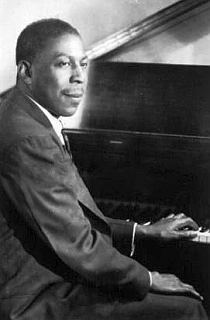
Major "Big Maceo" Merriweather was an American pianist and blues singer. He was mainly active in Chicago through the 1940s.

"Someday Baby" is a Grammy Award-winning blues song written and performed by American singer-songwriter Bob Dylan, released as the fifth track on his 2006 album Modern Times. The song had considerable success, garnering more airtime on U.S. radio than any other track on the album. It spent twenty weeks on Billboard's Adult Alternative Songs chart, peaking at #3 in November 2006. It was also anthologized on the compilation album Dylan in 2007.

"Trouble No More" is an upbeat blues song first recorded by Muddy Waters in 1955. It is a variation on "Someday Baby Blues", recorded by Sleepy John Estes in 1935. The Allman Brothers Band recorded both studio and live versions of the song in the late 1960s and 1970s.

"Rock Me Baby" is a blues standard that has become one of the most recorded blues songs of all time. It originated as "Rockin' and Rollin'", a 1951 song by Lil' Son Jackson, itself inspired by earlier blues. Renditions by Muddy Waters and B.B. King made the song well-known. When B.B. King's recording of "Rock Me Baby" was released in 1964, it became his first single to reach the Top 40 in Billboard magazine's Hot 100 chart.

"Caldonia" is a jump blues song, first recorded in 1945 by Louis Jordan and his Tympany Five. Although credited to Fleecie Moore, his wife at the time, Jordan is the actual songwriter. The song was a hit for Jordan as well as several other musicians.
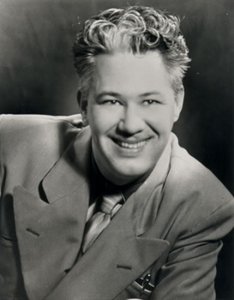
Theron Eugene "Ted" Daffan was an American country musician noted for composing the seminal "Truck Driver's Blues" and two much covered country anthems of unrequited love, "Born to Lose" and "I'm a Fool to Care".
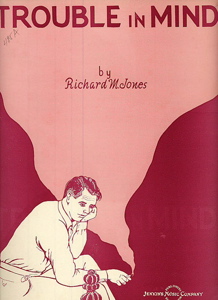
"Trouble in Mind" is a vaudeville blues-style song written by jazz pianist Richard M. Jones. Singer Thelma La Vizzo with Jones on piano first recorded it in 1924 and in 1926, Bertha "Chippie" Hill popularized the tune with her recording with Jones and trumpeter Louis Armstrong. The song became an early blues standard, with numerous renditions by a variety of musicians in a variety of styles.

"Key to the Highway" is a blues standard that has been performed and recorded by several blues and other artists. Blues pianist Charlie Segar first recorded the song in 1940. Jazz Gillum and Big Bill Broonzy followed with recordings in 1940 and 1941, using an arrangement that has become the standard.
"Bright Lights, Big City" is a classic blues song which was written and first recorded by American bluesman Jimmy Reed in 1961. Besides being "an integral part of the standard blues repertoire", "Bright Lights, Big City" has appealed to a variety of artists, including country and rock musicians, who have recorded their interpretations of the song.

Live in New York is the final album recording by the American country blues musician Mississippi Fred McDowell. New York-based American independent Oblivion Records released the first edition in the Spring of 1972, months before McDowell's death in July 1972. A subsequent Oblivion issue with a one song substitution, and new and redesigned liner notes came out one year later.
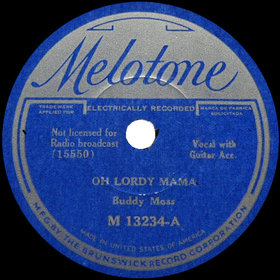
"Hey Lawdy Mama" is a Piedmont blues song recorded by Buddy Moss in 1934. The song became popular among jazz musicians with early recordings by Count Basie and Louis Armstrong. In 1943, a version recorded by Andy Kirk and His Twelve Clouds of Joy, with vocals by June Richmond, was a hit, reaching number four on the Billboard R&B chart.

"Driving Wheel", also called "Drivin' Wheel" or "Driving Wheel Blues", is blues song first recorded by Roosevelt Sykes in 1936. It was an influential early blues composition and has been recorded by numerous artists, including Junior Parker and Al Green, whose renditions were hits on the record charts.
"Milk Cow Blues" is a blues song written and originally recorded by Kokomo Arnold in September 1934. In 1935 and 1936, he recorded four sequels designated "Milk Cow Blues No. 2" through No. 5. The song made Arnold a star, and was widely adapted by artists in the blues, Western swing and rock idioms.
"Early in the Morning" is a blues song that was recorded by Sonny Boy Williamson I in 1937. Identified as one of his most successful and influential tunes, it was inspired by earlier blues songs. "Early in the Morning" has been recorded by various musicians, including Junior Wells, who made it part of his repertoire.
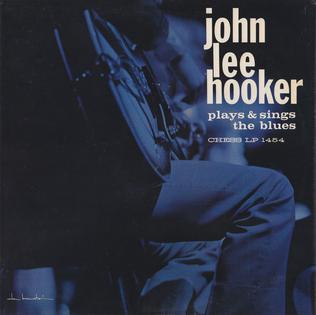
John Lee Hooker Plays & Sings the Blues is an album by blues musician John Lee Hooker. which was issued by Chess Records in 1961. It compiles songs recorded in 1951 and 1952, some of which were originally released as singles.
















